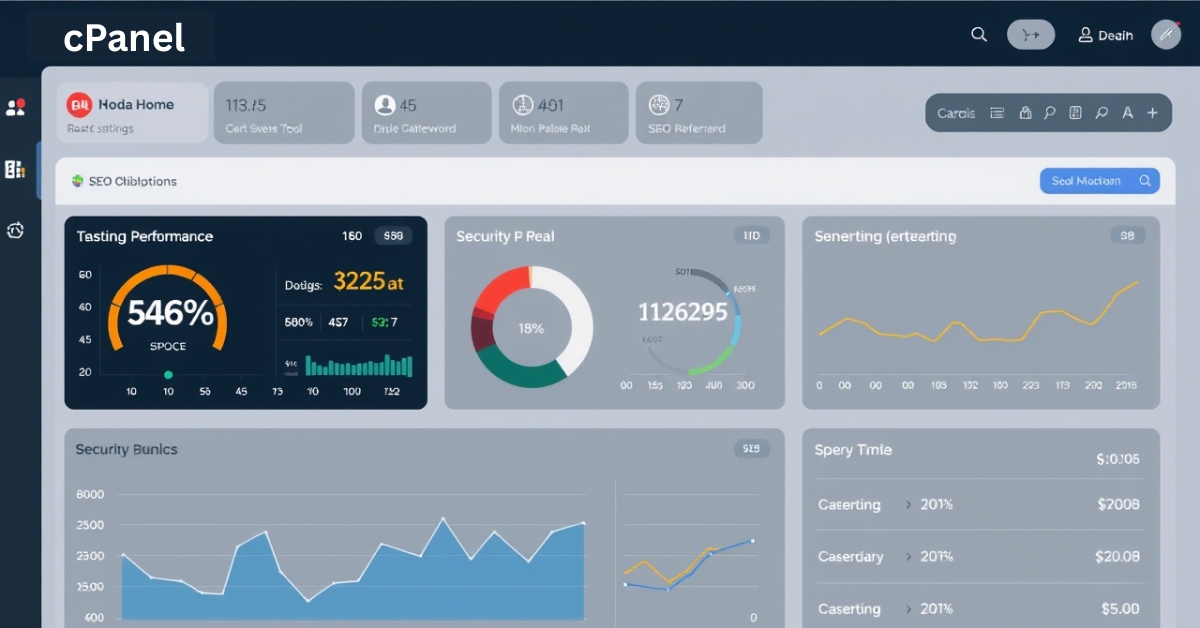How Web Hosting Affects Your SEO: Boost Rankings Now
How Web Hosting Affects Your Website’s SEO: The Untold Truth
You’ve heard it before: “Content is king.” But here’s the kicker-without the right hosting, even the best content can fall flat. So, what’s the deal with web hosting and SEO? Does it really matter? Absolutely. Let’s dive into how your hosting choice can make or break your SEO game.
What Is Web Hosting and Why Should You Care?
At its core, web hosting is the service that allows your website to be accessible on the internet. Think of it as the foundation of your online presence. But here’s the twist-your hosting provider doesn’t just store your files; it plays a pivotal role in how search engines perceive and rank your site.
The SEO Impact of Web Hosting
1. Page Load Speed: The Silent Ranking Factor

Google has made it clear: speed matters.
Websites that load faster provide a better user experience and are favoured in search rankings. A slow-loading site can lead to higher bounce rates and lower rankings.
Tip
Choose a hosting provider that offers SSD storage, optimized server configurations and a content delivery network (CDN) to enhance speed.
2. Uptime: Consistency is Key
Imagine your website is down when a potential customer tries to visit. Not only do you lose a visitor, but search engines also take note of your site’s reliability. Frequent downtimes can negatively impact your SEO rankings.
Tip
Opt for a hosting provider with a strong uptime guarantee, preferably 99.9% or higher.
3. Server Location and Geo-Targeting
The physical location of your server can influence your site’s load time for users in different regions. Additionally, search engines may use server location as a factor in geo-targeting your site.
Tip
Select a hosting provider with servers located near your target audience or consider using a CDN to serve content efficiently across regions.
4. SSL Certificates: Securing Trust

Google has confirmed that HTTPS is a ranking signal. Websites with SSL certificates are considered more secure and trustworthy, which can positively affect SEO rankings.
Tip
Ensure your hosting provider offers free SSL certificates or easy integration options.
5. Technical Support: Assistance When You Need It
Even the best hosting setups can encounter issues. Responsive and knowledgeable technical support can resolve problems quickly, minimizing potential SEO setbacks.
Tip
Choose a hosting provider known for excellent customer support, available 24/7.
Choosing the Right Hosting Provider for SEO
Not all hosting providers are created equal. Here’s what to look for.
- Performance: Fast servers with SSD storage and caching mechanisms.
- Reliability: High uptime guarantees and robust infrastructure.
- Security: Free SSL certificates and proactive security measures.
- Support: 24/7 customer service with expertise in SEO-related issues.
Common Hosting Myths Debunked
Myth: Shared hosting is always bad for SEO.
Fact: If managed well, shared hosting can be sufficient for small to medium-sized websites.
Myth: Changing hosting providers will instantly boost SEO.
Fact: While a better host can improve performance, SEO improvements take time and require more than just a hosting change.
Real-World Example: Webhostifier’s Impact on SEO
Let’s take a look at Webhostifier, a hosting provider that has garnered attention for its SEO-friendly features.

Overview
- Performance: Offers optimized servers with NVMe storage, ensuring fast load times.
- Uptime: Provides a 99.9% uptime guarantee, minimizing potential SEO setbacks.
- Security: Includes free SSL certificates and proactive security measures.
- Support: Offers 24/7 customer service with expertise in SEO-related issues.
SEO Benefits
- Improved Load Times: Faster websites are favored by search engines, leading to better rankings.
- Enhanced Security: Secure sites build trust with users and search engines alike.
- Better User Experience: Reliable hosting ensures users have a positive experience, reducing bounce rates
Conclusion
Your choice of web hosting isn’t just about storage space and bandwidth; it’s a critical component of your SEO strategy. By selecting a hosting provider that prioritizes speed, reliability, security and support, you set the stage for better search engine rankings and a more successful online presence.
Q&A
Can changing my hosting provider improve my SEO rankings?
If your current host is slow, unreliable or lacks essential features, switching to a better provider can positively impact your SEO.
Is shared hosting bad for SEO?
Not necessarily. If managed well, shared hosting can be sufficient for small to medium-sized websites.
How often should I monitor my website’s performance?
Regular monitoring is essential. Use tools like Google PageSpeed Insights to track performance and identify areas for improvement.
Ready to boost your SEO with the right hosting? Consider providers like Webhostifier that offer optimized performance, robust security and excellent support. Your website’s success starts with the right foundation.







